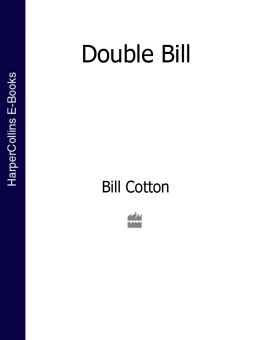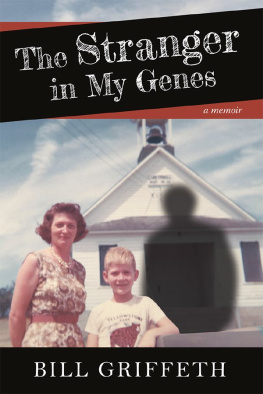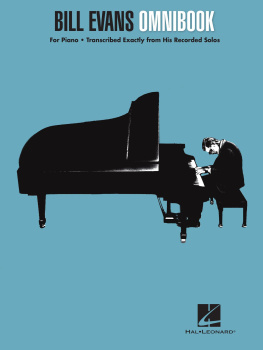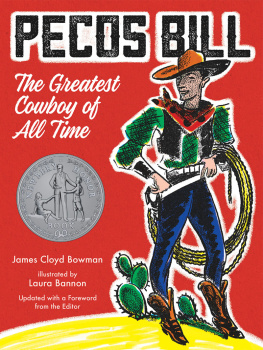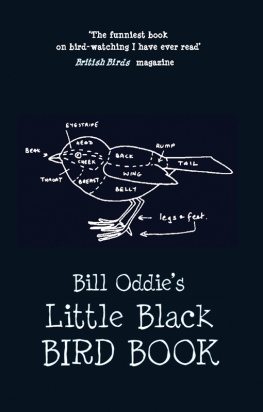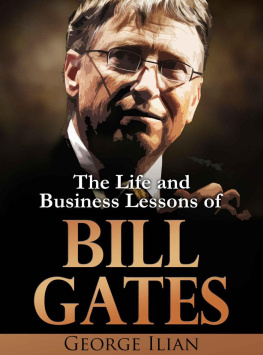Cotton Bill - Double bill: 80 years of entertainment
Here you can read online Cotton Bill - Double bill: 80 years of entertainment full text of the book (entire story) in english for free. Download pdf and epub, get meaning, cover and reviews about this ebook. City: London;Great Britain, year: 2016;2001, publisher: HarperCollins Publishers;Fourth Estate, genre: Non-fiction. Description of the work, (preface) as well as reviews are available. Best literature library LitArk.com created for fans of good reading and offers a wide selection of genres:
Romance novel
Science fiction
Adventure
Detective
Science
History
Home and family
Prose
Art
Politics
Computer
Non-fiction
Religion
Business
Children
Humor
Choose a favorite category and find really read worthwhile books. Enjoy immersion in the world of imagination, feel the emotions of the characters or learn something new for yourself, make an fascinating discovery.
- Book:Double bill: 80 years of entertainment
- Author:
- Publisher:HarperCollins Publishers;Fourth Estate
- Genre:
- Year:2016;2001
- City:London;Great Britain
- Rating:5 / 5
- Favourites:Add to favourites
- Your mark:
- 100
- 1
- 2
- 3
- 4
- 5
Double bill: 80 years of entertainment: summary, description and annotation
We offer to read an annotation, description, summary or preface (depends on what the author of the book "Double bill: 80 years of entertainment" wrote himself). If you haven't found the necessary information about the book — write in the comments, we will try to find it.
Double bill: 80 years of entertainment — read online for free the complete book (whole text) full work
Below is the text of the book, divided by pages. System saving the place of the last page read, allows you to conveniently read the book "Double bill: 80 years of entertainment" online for free, without having to search again every time where you left off. Put a bookmark, and you can go to the page where you finished reading at any time.
Font size:
Interval:
Bookmark:

This book is dedicated to my wife, Kate, for things too
numerous to mention, but above all for her love.
CONTENTS
Anyone embarking on writing their first, and probably their last, book needs help. I have been well served by many people. First and foremost my good friend Colin Morris. In 1997 over lunch he suggested we should do a series of programmes for Radio 2 about my father and myself; I agreed. The title for the series was suggested one evening when my wife Kate and I were having a drink with Dave Allen and Karen Stark. Karen said out of the blue, You must call it Double Bill, and so we did.
Two years later Colin insisted that I should write a book with the same title. He promised to help me and certainly has. I also thank the many friends and colleagues who refreshed my memory of the events and anecdotes that make up this story. However the stories and opinions here show how I saw things at the time, and I have tried to make it as entertaining as possible. Ive always believed a little about the politics of broadcasting, in particular of the BBC, goes a very long way. Its the people and the programmes that matter.
I would like to thank my wife who typed what I wrote, Hilary Carrigan who was more than helpful, Pat Coward who checked facts; and Bobbie Mitchell who helped with the photographs.
Finally thanks to the staff at Fourth Estate, and in particular Christopher Potter, their Publishing Director, to whom I can only express my gratitude for his confidence and support throughout.
To my children and grandchildren, I am only sorry we didnt see much of each other while I was trying to become a literary giant I feel much better now.
On a crisp spring afternoon in 1969 I sat in St Margarets, Westminster, which is next door to the Abbey. It was my fathers funeral and, because he had been what one newspaper obituary called one of the greatest entertainers of modern times, the church was packed. My father was as usual playing to a full house, but this was the very last time he would do so. Celebrities like the great band-leader Henry Hall rubbed shoulders with hundreds of ordinary folk for whom Billy Cotton and his band had become over the years a valued part of their lives, on radio, television and in the theatre.
St Margarets is one of the most fashionable and beautiful churches in the land; MPs in particular cherish the privilege of being married or having their children baptised there. But it was the location for my fathers funeral not because he was famous or important but because he was born in the parish. When I went along to ask the rector if the service could take place there, he seemed dubious: Lent was a busy time; there were lots of services planned; the choir would be at full stretch; and so on. Beneath his expressions of regret, though, I detected just a tinge of scepticism at my claim that Dad had grown up in the parish and sung in St Margarets choir. Then a verger appeared and the rector explained to him what I was doing there and the difficulty of fitting in the funeral. Thats a pity, said the verger. He really loved this place. I often chatted with him when he slipped in to listen to the choir. That settled it. It was agreed that Dad should be laid to rest in his own parish church.
In fact, Dad had been born at what is now an exclusive address, No. 1 Smith Square, adjacent to the Conservative Party central offices. In 1899 it was a two up, two down terrace house (rent: seven and sixpence a week) and Dad shared a bedroom with three brothers while six sisters squashed into an attic room. Westminster was then a self-contained village within London. Like the other kids in the area, my father played in the streets around the Parliament buildings, hitched lifts on the cow-catchers of trams and swam in the Thames off Lambeth Bridge when the police werent looking. (If they were looking, Dad would often end up running home, naked and dripping wet, his boots tied by their laces round his neck.)
Dads father was a ganger in charge of a section of the Metropolitan Water Board, and looked splendid in a top hat with a badge on it. He was a huge man who could with one hand pick up his wife, Sukey, who was only four feet tall, and tuck her under his arm. He was once invited onto the stage of the Aquarium in Tothill Street to try his luck against George Hackenschmidt, the Russian world-champion wrestler. In a flash he was on his back, but went away with the ten shillings promised to anyone brave enough to go into the ring against the worlds strongest man.
I still use my grandfathers malacca walking-stick which has a gold band around the top inscribed, To Joseph Cotton: from X Division, Metropolitan Police in appreciation of help with violent prisoners. May 1925. He must have been sixty-five years of age when he came to the rescue of a couple of police constables trying to arrest a gang of thugs. So he knew how to take care of himself.
Grandad was mad on clocks. However complicated they were, he could take them to pieces and put them together again. He had three or four clocks in every room of the house cuckoo clocks, chiming clocks, water clocks. It was bedlam to walk through the house on the hour or half-hour.
In the deep silence before the funeral service began, I gazed around the church to keep my mind occupied and my eyes off Dads coffin. As a choir boy, under the eagle eye of St Margarets legendary organist and choirmaster, Dr Goss-Custard, Dad had sat in one of those stalls practising every weekday at noon between morning and afternoon school-lessons. Apparently he had a beautiful voice, and besides enjoying the singing earned a few precious shillings for special services such as weddings and funerals. And so began a life dedicated to music. To the end of his life he could sing arias such as I Know That My Redeemer Liveth from Messiah, though since that was composed for a soprano voice it sounded strange in his husky bass-tones. According to my grandmother he was a typical choirboy: cherubic in surplice and ruff collar but a tough, vigorous lad elsewhere, especially on the football field. His school played all their matches on Clapham Common, and theyd have to march the three miles there and back carrying the goalposts.
Tattered regimental banners, worn with age and damaged in battle, hung down from the nave of St Margarets, and I wondered whether the standard of the Second Battalion, the London Regiment, was among them. Popularly known as the Two-and-tuppences, this was the regiment my father joined in 1915. Hed volunteered as soon as the Great War broke out the previous year, but as a spotty fifteen-year-old couldnt convince the red-sashed recruiting sergeant that he was sixteen, coming on seventeen. Twelve months later he enlisted as a boy bugler and was posted to Malta, where he was introduced to the seamier side of life in the quarter of Valletta the troops called the Gut. There were peep shows where for a penny you could see a naked lady, but Dad was perpetually hungry and preferred to go instead to the Salvation Army. They gave him a cup of tea and a fairy-cake in return for him standing on the roof of the building, bashing a tambourine and pointing at the red-light district. Thats the way to the Devil, hed shout, and this is the way to the Lord. Come on in! And whenever one of the lads followed his advice Dad would get another fairy-cake.
From Malta he sailed to the Dardanelles, where a desperate engagement against the Turks was being fought. He later recalled that as he clambered down the troopships side to wade ashore off Cape Hellas, a huge Marine asked where his rifle was. Touching the musicians badge on his arm, Dad replied, I dont carry a rifle. Im a bugler. The Marine snorted, Theres only one bugler around here thats Gabriel. Hes in heaven and youll soon bleeding well be joining him without one of these. Catch! With that, the Marine threw him a rifle and Dad became a serious soldier. Unable to move inland from the beaches, under constant Turkish shelling and German aerial bombardment from Taube biplanes that dropped steel darts to skewer you to the ground, Dad spent weeks sleeping in the freezing rain amid the bodies of his comrades and scurrying rats. He grew up during that doomed and brutal campaign. There was precious little chivalry around; the Turks mutilated prisoners and the Allied soldiers sometimes retaliated by hurling hand grenades into the POW cages where the Turkish prisoners were held.
Font size:
Interval:
Bookmark:
Similar books «Double bill: 80 years of entertainment»
Look at similar books to Double bill: 80 years of entertainment. We have selected literature similar in name and meaning in the hope of providing readers with more options to find new, interesting, not yet read works.
Discussion, reviews of the book Double bill: 80 years of entertainment and just readers' own opinions. Leave your comments, write what you think about the work, its meaning or the main characters. Specify what exactly you liked and what you didn't like, and why you think so.

